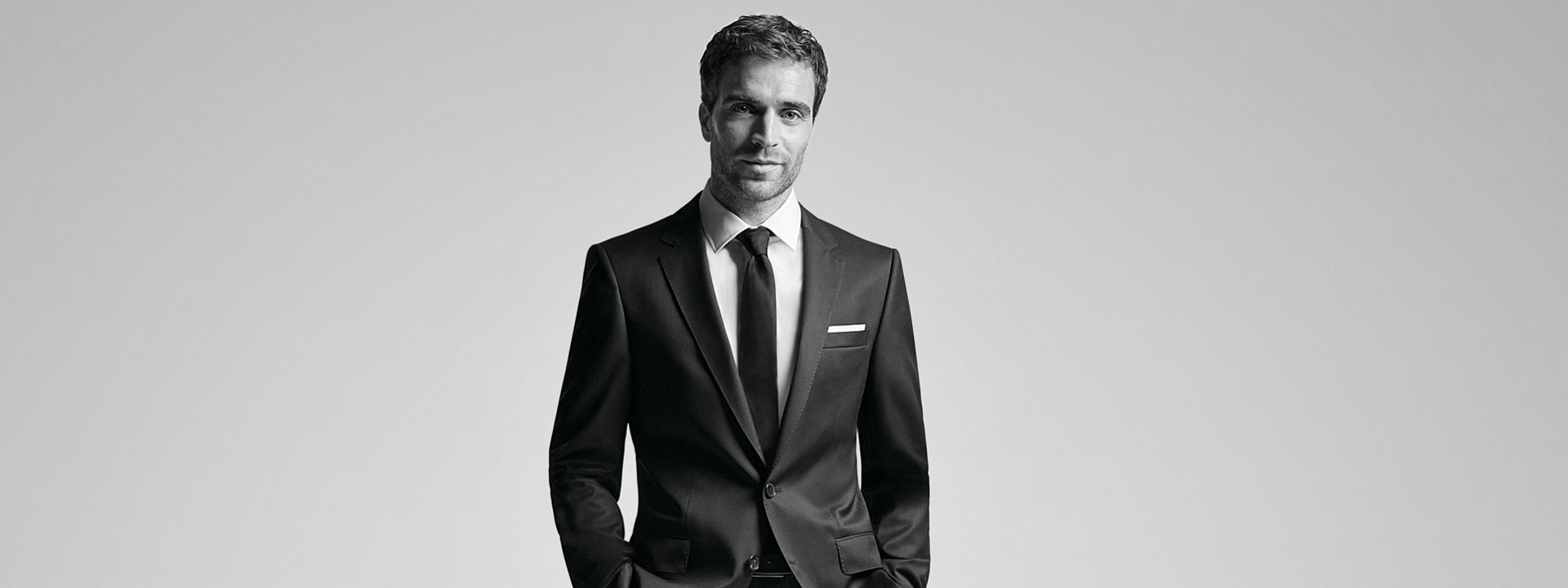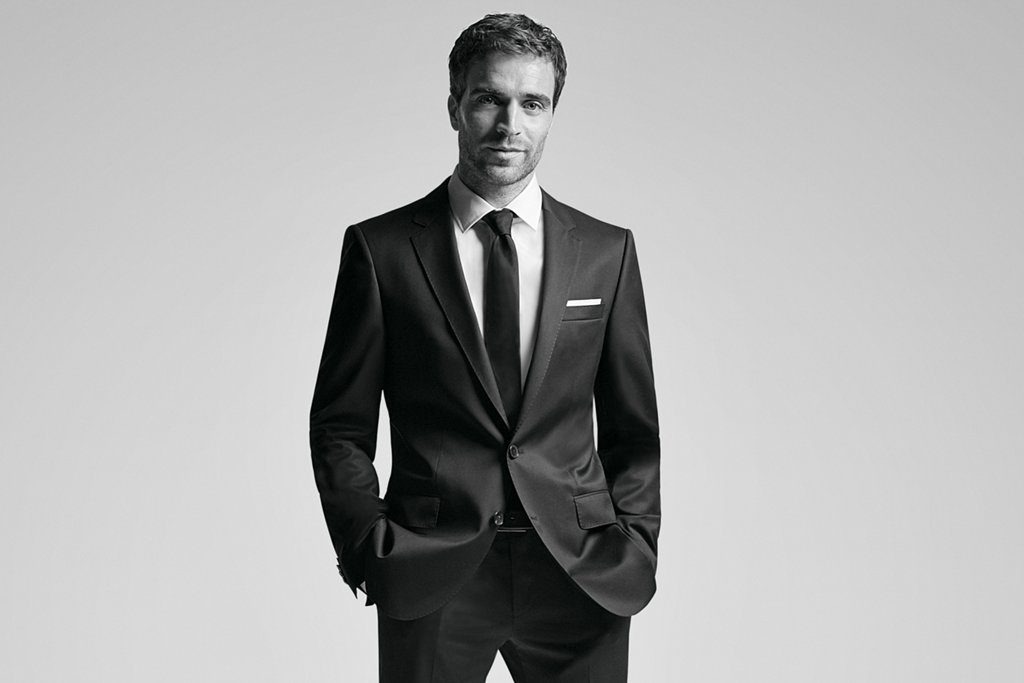

"Formula E is really making a change"
Belgian Formula E driver Jerome D'Ambrosio started his journey in karting before progressing up the single-seater ranks in Formula Renault, Formula Renault 3.5, Formula Masters and GP2. He made his Formula 1 debut in 2011 before making the move to Formula E. "For me, it was important to be part of something that made sense in the longer term," he reveals, in this exclusive BOSS interview.


-
When did you first start racing and how did it all begin?I started when I was 7 or 8 years old. I was on vacation with my mum and my sister somewhere in France and they took me go-karting. I really enjoyed it, and when I came back home to Belgium I asked my parents if I could stop playing football like most other kids at that age. I wanted to go go-karting. That's how it all began.
-
What drew you to Formula E racing?For me, it was important to be part of something that would make sense in the longer term. And what I mean by that is that it has to be relevant to society, what society is going through today in terms of the challenges of sustainability and technology and so on. The only challenge that could offer something more in touch with our reality today was Formula E. Not only the technology, also the way of looking at cities and bringing the show to the fans. So I made the decision and I went to Formula E.
-
How do you prepare for a race?I don't have any particular preparation to be honest. We have a simulator, and we have two or three days of the simulation before we go to the track. If, for example, the race is on a Sunday, I will arrive at the location on Thursday night or Friday morning and settle down a little bit in the city. Saturday is the first day where everything begins. You get in the car, we get some practice in and then the Sunday race arrives. It's difficult to have a precise routine before a weekend or before getting in the car, because you have so many things to do. The planning changes all the time, and you need to be flexible with that. I think one of the key factors of being successful in Formula E is being able to switch quickly into your focus and into what you have to do. During the day you just don't have time for yourself - you go from meeting with engineers to PR, to meeting sponsors, and then you have to be in the car. And that is something you have to learn to deal with.
-
What does your training involve?I have a general training routine in order to keep fit and drive the car at its best level all the time. I do cycling, gym training, yoga. I like to discover new sports. I just discovered yoga which I quite enjoy, combining it with some more traditional training, some tennis, some football. In general I like sports where you can have fun as well, not just lifting weights in the gym.
-
How does racing in a Formula E car differ from fuel-powered cars?The job of a racing driver in the car is very similar. You're just going as quickly as you can through corners and going as quickly as you can through laps. Your role in the car is the same. What is different is the feeling. Audio references are quite different from what you're used to with a petrol engine. Normally the engine noise is predominant in the car, but it's not when you are racing an electric car. In terms of driving, you have this electric motor, its maximum power is available to you all the time, which is not the case with a normal petrol engine. Then the main difference in terms of driving is in the race, where you have to save a lot of energy and the approach is quite different in that respect.
-
What is the most important thing that Formula E brings to motorsport? How do you think Formula E will change motorsport?Relevance. That's the most important thing that Formula E brings to the sport. For it to have the impact that it has now, the sport has to be relevant, the technology has to be relevant, and that is what Formula E brings. And it's quite amazing that it's trying to be more relevant to the fans and the younger generation who don't necessarily want to travel 300km to stay three days somewhere to watch the same thing. Our generation is more of an immediate gratification generation. It's a generation that enjoys watching a race on a Saturday and perhaps doing something else on a Sunday. It's a generation that likes waking up in the city and grabbing coffee with their friends and chilling a little bit, going to the track for lunch or in the afternoon to watch the race. It takes them 10 minutes to get to the race on the tube or on a bicycle because the show is brought to them. Formula E is really making a change.
-
How has it been working with HUGO BOSS?I have enjoyed the relationship with HUGO BOSS very much. We had some fun events together. I wouldn't call myself a fashion expert, but I really do enjoy being dressed accordingly based on the event I have to go to. BOSS is a perfect fit for me. I sometimes need a Made to Measure suit - I personally enjoy the fitting the most. I might need that for an event, for a meeting, for a place that requires that kind of suit. I also really enjoy that I can dress casually with BOSS. It is cool that the brand can provide me with my wardrobe for every possible activity, and all the events I need to go in a year.
-
What has been your best racing moment so far?This is a very difficult question for me, as I've had so many great moments in my career. From go-karting, to winning the World Championship, to winning the GP2 in Monaco, to winning several championships in my own career when I was younger. Obviously the first Grand Prix in Formula 1 was something magical. My first time racing in Formula 1 was fantastic. Formula E for the first time in Beijing was historic. It was amazing to be part of something like that and no one had any idea how the whole thing would turn out. Stepping into the unknown was something brilliant. It is really difficult to choose - all these moments made me who I am today.
-
Which is your favourite city to have raced in, and why?I think again, it is too difficult to choose one of the amazing cities. Racing in Paris, Rome, Zurich, Hong Kong, and now New York. So many great cities and they're all different. I think in terms of track I really loved Rome. The event in Zurich was crazy! So many people, so much enthusiasm, so many fans, everyone was so excited about it.
-
How is it for you racing on a racetrack in the heart of a city?I always find it very challenging and I really enjoy it. It's a place where you aren't allowed to make any mistakes. And at night you can completely disconnect and go for dinner in the heart of the city. It is great!
-
What goes through your mind on the racetrack?Not much (laughing). There is a lot that goes through my mind, but it is very much a process of driving your car at different events in light of what is going on and reacting in the best possible way. And that is what you have to do. So there are no thoughts, you don't lose yourself or think of something else. It really is just driving as fast as you can, analysing what is going on, sharing the energy with your team. You are very much in the present and that's the key to being successful in a race car.
-
How do you celebrate a victory?It depends. When you get out of the car you celebrate with your team and everyone. Then last time in Zurich I went for a nice dinner with my girlfriend and a friend and that was the best possible way to celebrate the race. We went back to the hotel and had a drink with the team. We shared a little bit of the moment with them, and that's a really nice way to celebrate.
-
If you could race in any city in the world, where would it be?I think Vienna would be really nice. It's a gorgeous city and it's close to my heart. I would love to have a race there.
